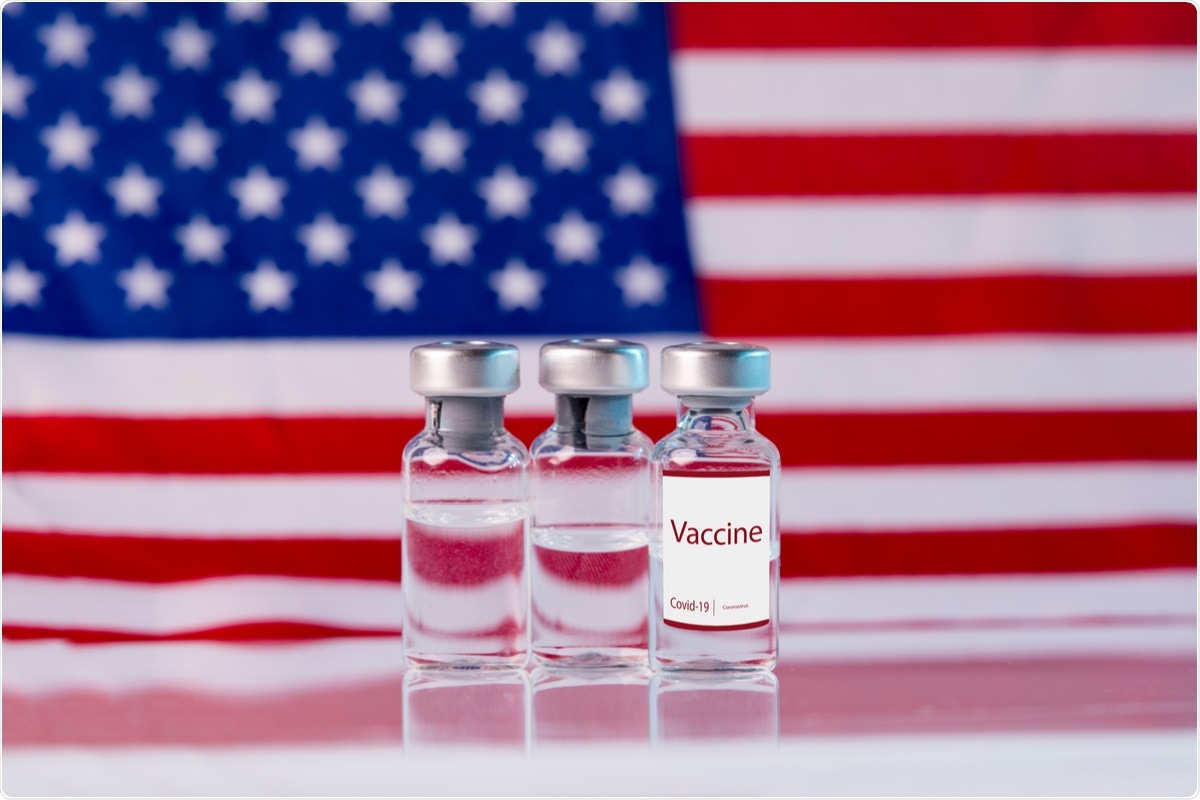COVID-19 vaccination side effects in the USA
The coronavirus disease 2019 (COVID-19) pandemic caused by severe acute respiratory syndrome coronavirus 2 (SARS-CoV-2) has hugely impacted human health and the economy worldwide. Researchers and healthcare professionals believed that the impact of COVID-19 could only be reduced by the administration of vaccines.
 Study: How frequent are acute reactions to COVID-19 vaccination and who is at risk?. Image Credit: sportoakimirka/ Shutterstock
Study: How frequent are acute reactions to COVID-19 vaccination and who is at risk?. Image Credit: sportoakimirka/ Shutterstock
The United States (US) Food and Drug Administration’s (FDA) regulatory pathway for Emergency Use Authorization (EUA) is responsible for giving authorization to vaccines for health emergencies. However, the development of so many vaccines so fast was not observed before the emergence of COVID-19.
Although many vaccines have been developed against SARS-CoV-2, there is still vaccine hesitancy due to the speed and safety of the developed vaccines. Furthermore, very little information is available regarding the reaction of people who receive the COVID-19 vaccines outside the clinical trials.
A new study published in the pre-print server medRxiv* described and compared self-reported side effects of three different COVID-19 vaccines administered between March 19 and July 15, 2021, in the United States. The study also characterized the impact of the vaccines on life, work and helped identify any health-related practices that could increase the risk of acute side effects.
About the study
The study involved a web-based registry known as the COVID-19 Active Registry Experience (CARE) to identify COVID-19 symptoms and severity outside of the hospital setting. Participants who had received a complete dose of COVID-19 vaccination, either two doses of the Pfizer or Moderna vaccine or one dose of the Johnson & Johnson vaccine, between March 19 and July 15, 2021, were recruited for the study.
The participants provided an online consent as well as information on medical history, demographics, COVID-19 test results, symptoms, COVID-19 vaccination, date of vaccination, and use of medications and dietary supplements. The participants were also asked to report the presence of any side effects after vaccination. Participants were asked whether the side effects hindered their ability to perform daily activities, if they affected their work, or if any hospitalization was required due to the side effects.
Study findings
The study results indicated that out of the total 6966 participants, 3486 received both doses of the Pfizer vaccine, 2857 received both doses of the Moderna vaccine, and 623 received a single dose of the Johnson & Johnson vaccine. Most of the population reported in the study was White, with small numbers of Asians, African Americans, and combinations of races. Furthermore, 80 percent of the participants were female, and a substantial portion of the population reported cases of depression, anxiety, insomnia, and cancer.
The participants who received the Pfizer vaccine were a little younger than the Moderna or Johnson & Johnson vaccine. Additionally, participants who received the Johnson & Johnson vaccines included a higher percentage of smokers than the Moderna and Pfizer vaccines.
The study indicated that most participants receiving either of the three vaccines reported a median of three side effects after the first or second dose of the vaccine. Only 3.1 percent of participants required medical care post-vaccination with very few cases of hospitalization. The most common side effects that were reported were fatigue, injection site reactions, and headache.
Furthermore, one-third of the vaccine recipients reported trouble taking care of themselves for a short time immediately after vaccination due to the side effects. Also, 35.4 percent of employed participants reported working less for a day due to post-vaccination side effects.
The study results show that the Moderna vaccine was found to cause more side effects than the Pfizer or Johnson & Johnson vaccine. It was also found that the second doses of the mRNA vaccines produced more side effects than the first doses. Additionally, the second doses of the mRNA vaccines were associated with greater difficulty in self-care than the first doses compared to the viral vector vaccine.
The study also reported that females experienced greater side effects as compared to men. Also, younger people were found to experience lesser side effects than older ones. Increased side effects were reported for individuals with autoimmune disorders, depression, insomnia, and anxiety. In contrast, individuals with diabetes reported lesser side effects than individuals who did not have diabetes. Additionally, individuals who had a vaccination for influenza were found to experience lesser side effects and had fewer problems in taking care of themselves.
Conclusion
Therefore, the study was useful as it provided community-based insights on the safety and efficacy of the COVID-19 vaccines. It provided patient-centric information about the vaccine burden depending on the vaccine type. This helped healthcare providers and patients get an idea about the side effects they might experience post-vaccination. However, further analysis is required to determine the real-world effectiveness of the vaccines, along with their long-term safety and tolerability.
Although the study effectively determined the side effects of three of the COVID-19 vaccines, it had certain limitations. The sample size was small, and it was not indicative of the entire US population, and the participants may have reported more side effects due to self-registry. Also, the study was not suitable for detecting rare events or the study of rare groups.
*Important notice
medRxiv publishes preliminary scientific reports that are not peer-reviewed and, therefore, should not be regarded as conclusive, guide clinical practice/health-related behavior, or treated as established information.
- Dreyer, N.A. et al. (2021). How frequent are acute reactions to COVID-19 vaccination and who is at risk? medRxiv. doi: https://doi.org/10.1101/2021.10.14.21265010.
Posted in: Medical Science News | Medical Research News | Disease/Infection News
Tags: Anxiety, Cancer, Coronavirus, Coronavirus Disease COVID-19, Depression, Diabetes, Efficacy, Fatigue, Food, Headache, Healthcare, Hospital, Influenza, Insomnia, Pandemic, Respiratory, SARS, SARS-CoV-2, Severe Acute Respiratory, Severe Acute Respiratory Syndrome, Supplements, Syndrome, Vaccine, Viral Vector

Written by
Suchandrima Bhowmik
Suchandrima has a Bachelor of Science (B.Sc.) degree in Microbiology and a Master of Science (M.Sc.) degree in Microbiology from the University of Calcutta, India. The study of health and diseases was always very important to her. In addition to Microbiology, she also gained extensive knowledge in Biochemistry, Immunology, Medical Microbiology, Metabolism, and Biotechnology as part of her master's degree.
Source: Read Full Article


